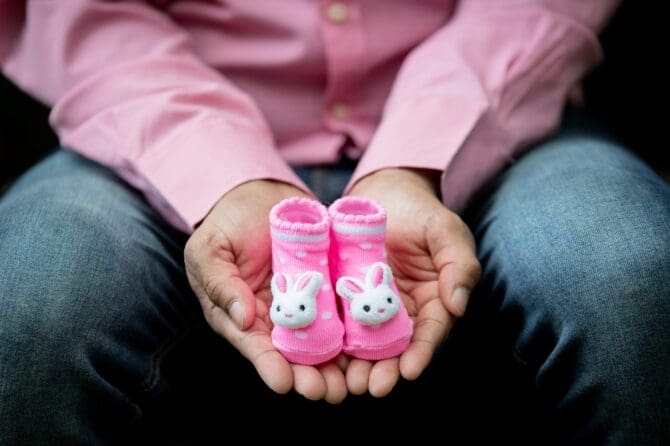The idea of getting pregnant again after miscarrying can be absolutely terrifying. The thought of going through that pain and heartache once more is understandably enough to make anyone want to give up on the idea of ever trying for a baby again.
However, it’s important to remember that though miscarriages are incredibly common – occurring in about 1 in 3 pregnancies – it doesn’t mean that you’re doomed to experience it again.
So, if you’re considering getting pregnant after a miscarriage, try to speak to your doctor about your concerns and what you can do to help reduce your risk of miscarrying again.
Why do women miscarry?
According to medical experts, there are 6 primary reasons why a woman might miscarry her pregnancy:
1. Chromosomal damage
2. Immune System and antibodies
3. Medical Disorders
4. Uterine Abnormalities
5. Hormonal Problems
6. Infection
Out of the six reasons that lead to miscarriages, we will be focusing on the two most common ones: chromosomal damage and uterine abnormalities.
Early and first-term miscarriages are often caused by chromosomal damage. However, this type of damage is not recurring and the chances of another miscarriage happening for the same reason are very slim.
The other most common cause of second trimester miscarriages is referred to as an incompetent cervix. This is a weak cervix that tends to dilate before the fetus has reached full term.
Some women are born with abnormalities of the uterus that can cause recurrent miscarriages. If your health practitioner suspects that this is the case, she will perform a hysterogram – an X-ray using injected dye to determine the shape of the uterus.
If you’re wanting to get pregnant again after miscarrying, there are a few things you can do to help increase your chances.
1. Before trying to conceive again, it is important to eliminate alcohol, smoking, and drug consumption from your lifestyle, as well as caffeine from sources like tea, coffee, and chocolate. Ideally, you should make these changes a few months in advance, and it is also crucial that you are at a healthy weight.
2. The Use of Traditional Chinese Medicine (TCM):
Sang Ji Sheng is a herbal tea that is used to address various blood deficiency symptoms such as general body weakness, hot flashes, increased susceptibility to infections, shortness of breath, fatigue, dizziness, blurred vision, palpitation, anxiety, depression, high blood pressure, insomnia, and nervousness.
Not only is this herb helpful for pregnant women, but it can also reduce the risk of miscarrying. The recommended dosage is 15 grams per day.
Now that you know about this natural way to help protect your pregnancy, you can feel more confident about trying again after a miscarriage.











